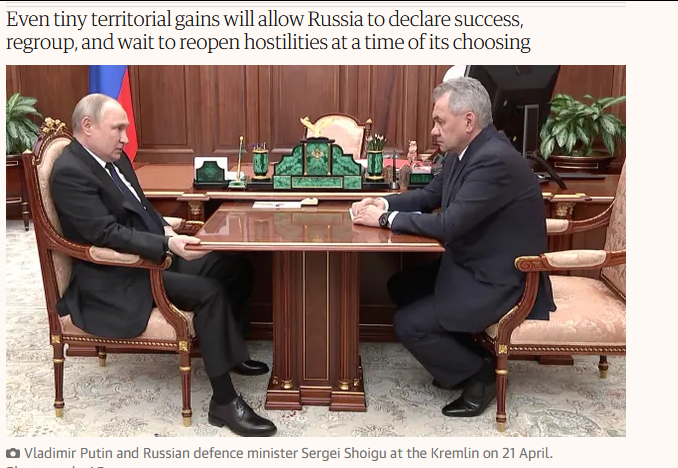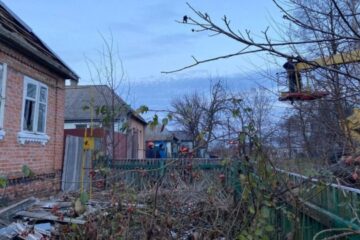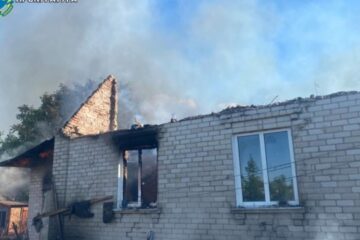
Even tiny territorial gains will allow Russia to declare success, regroup, and wait to reopen hostilities at a time of its choosing
As Russia builds up its offensive operations in the east of Ukraine, many in the west have suggested that Vladimir Putin has ordered his forces to deliver success in Mariupol in time for Russia’s Victory Day, on 9 May. That’s an assessment based largely on circumstantial evidence and the cult status of Victory Day itself – but it’s not one that’s supported by what Russia is telling its own population, where domestic propaganda channels are no longer making promises of a swift end to the conflict.
Nevertheless, Putin is free to declare victory by whatever artificial deadline he chooses. Russia has already reinvented what its war was supposed to achieve, and can do so again if necessary. Moscow can say it has achieved its aims regardless of the facts on the ground and call an end to its “special operation” at will. This would present Ukraine with another harsh dilemma – the need to fight on while Russia appears to be offering peace, risking the erosion of support from western backers who would prefer an end to the fighting even if, in the long term, it could mean the end of Ukraine.
A unilaterally declared end to the war by Russia will cause Ukraine’s western partners to push Kyiv to follow suit, which Volodymyr Zelenskiy may be unable to resist. Those partners will also slacken their material support for continuing operations if he is seen to be continuing the war “unnecessarily”. With or without a 9 May deadline, there are good reasons for Russia to seek a temporary end to the fighting, not least to allow its battered forces to regroup. A declaration of victory would provide the “off-ramp” for Russia that would actually be useful to Moscow, unlike many of the options presented at the beginning of the year by western leaders who were trying to avoid conflict in the first place.
Rather than aiming at steamrollering the Ukrainian defences regardless of cost, Russia’s offensive could have far more limited and deliberate ambitions. The eventual, inevitable end of Ukrainian resistance in Mariupol can be presented as a major strategic victory. And with Russia and its propagandists continuing to depict the Azov battalion based there as a neo-Nazi organisation, this also means Russia can claim a major success in its aim of “de-nazification” of Ukraine. Russia enjoys almost total control of the information that reaches large sectors of its population, so even insignificant territorial gains can be sold as major breakthroughs.
Ukraine cannot continue the war indefinitely without major economic aid and increased military assistance. The country’s infrastructure is under attack; key exports have been interdicted by Russian maritime blockade; its military are suffering constant attrition; and its population is reeling from trauma inflicted by Russian occupiers. If western backers don’t offer enough support, Ukraine could find the burden of this war unsustainable.
By contrast, Russia can – if it wishes – devote resources and manpower to this war for far longer. At the same time, Ukraine is fully aware that Russia will not conclude agreements on ending the war in good faith, and that an end to the conflict will do nothing to relieve the suffering of Ukrainians under occupation. Ukraine has a moral imperative to relieve its citizens who are facing terror and deportation in Russian-occupied territories.
If Zelenskiy accepts peace, Ukraine will be unable to hinder Russian plans for the occupied territories. The Kremlin is already reported to be planning staged referendums in occupied Ukraine, replicating the 2014 referendum it used to give false legitimacy to its seizure of Crimea. While the west and Ukraine will shoulder the burden of reconstructing Ukraine’s many destroyed cities, its economy and armed forces, Russia will be able to restart the war when it feels the timing is right. As ever, pursuing a “temporary” ceasefire risks creating a country permanently divided between Russian-occupied territory and a Ukrainian rump state. It could also foster enduring low-level conflict that Russia could choose to reactivate at will.
An extended period of high-intensity fighting will be most damaging for Ukraine. But it also presents other risks for Russia, too. Its military leaders are now fully aware of the nature of the war it has started and of the strength of Ukrainian resistance. This may lead to a more cautious approach. After over a decade of Russia building up its armed forces at enormous expense, only for them to suffer shattering loses in the early stages of the Ukraine campaign, Russia’s generals will want to preserve as much of their combat power as possible for the next phase of their war on the west.

Putin also has other deadlines to meet. Russia is holding presidential elections in March 2024. Although Putin claims that he has “not yet decided” whether he will be seeking re-anointment, he will need the Russian public to think of Ukraine as a success long before they are asked to vote for him, no matter how fictitious the eventual election result may be. This could be a reason for Russia seeking a pretext to end (or at least scale down and conceal) its campaign in Ukraine, after declaring that it has been a success.
A small (and possibly even fictitious) territorial gain in Ukraine, over and above the capture of Mariupol, would provide Russia’s propagandists with a viable story to sell their population. If Putin not only persuades himself that his campaign in Ukraine wholly or partly achieved its aims, but also believes that the damage incurred by Russia’s military was tolerable rather than critical, the next of his wars will arrive sooner rather than later.
- Keir Giles works with the Russia and Eurasia programme of Chatham House. He is the author of Moscow Rules: What Drives Russia to Confront the West




